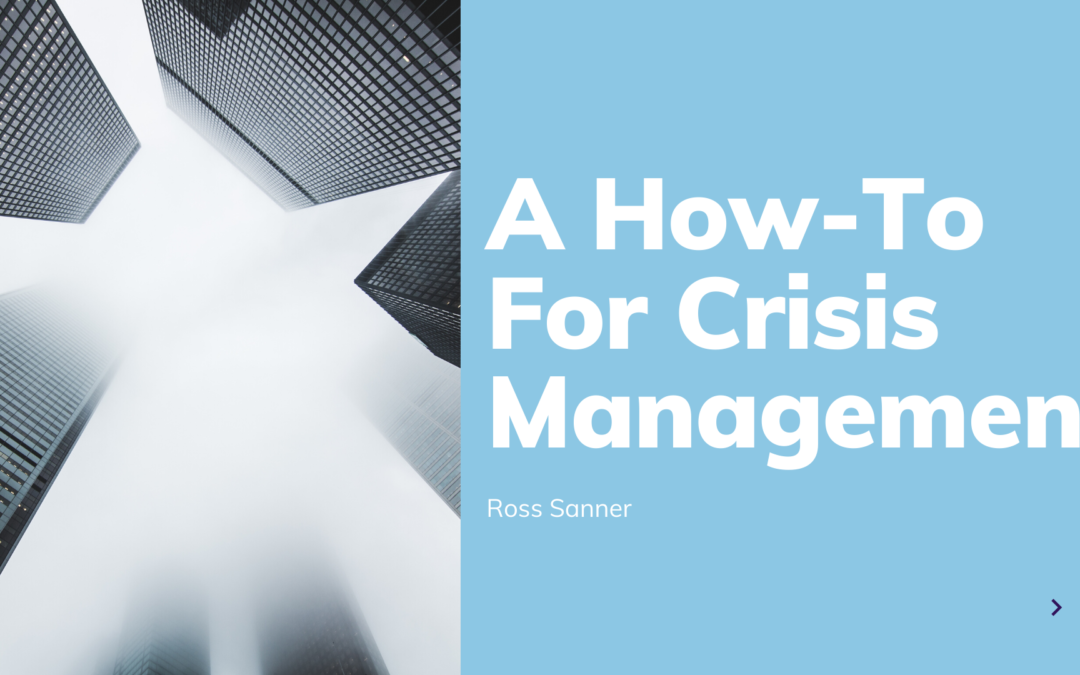It is the responsibility of company leadership to develop a crisis management plan to ensure a company’s survival throughout times of hardship. The COVID-19 crisis is only one example of an unprecedented event that ends “business as usual” operations and forces companies to make hard decisions in order to respond. Other events, such as natural disasters, unexpected deaths, or a PR crisis, can be covered by planning. However, it’s difficult to anticipate every single thing that could impact a business, and as a result, most crisis management plans account for a general course of action while still remaining adaptable. We at Think Growth Consulting pride ourselves on thriving during uncertain times—our services center around navigating these ongoing issues without losing sight of a company’s mission and goals.
For businesses that have an undeveloped or nonexistent crisis plan, COVID-19 represents the opportunity to rethink the reigning strategy and plan for the future, using lessons learned from the pandemic. Even after over a month in quarantine, there is value in forming contingencies for a longer lockdown as well as other worst-case scenarios as the situation develops. Planning principles that can be applied to a global pandemic can be surprisingly versatile for preparing for anything beyond.
While managing the crisis itself is the crux of any plan, the context surrounding it is almost as important. Detection and prevention should be an ongoing part of any crisis management plan, and aim to avert a disaster before it strikes. Not all incidents should or will escalate to the point of a crisis, and identifying events that can lead to a larger issue (such as the actions of a disgruntled employee or an ongoing drop in demand for a product/service) is a big part of preventing them from getting worse. A crisis management plan should include the definition of what a crisis is, and provide several examples specific to the business and industry. Different kinds of crises should also be assessed based on their type or potential impact on a company, including financial, loss in sales, or loss in customer loyalty.
When it comes to evaluating these factors, Think Growth operates in a number of verticals, giving us perspective on what companies are doing well and which are struggling. We can bring best practices from each of these verticals to others to help in ways an in-house team can’t.
When emergencies do come to pass, the crisis management process should be enforced in full. A thorough plan will contain details about the processes used to inform employees about a crisis, which personnel are responsible for which facets of response, and a timeframe for responding in a swift but realistic manner. This may also include hiring consultants or other third-party experts to shore up areas where the company is weak or advise on next steps. Regardless, anybody involved in tackling a crisis should take thorough notes and chronologically document their progress.
Once a plan is underway, a crisis plan should address several questions. Resolution always looks different depending on the crisis in question, but businesses should at least have an idea of how long the issue will last, how many individuals will need to be involved, what tools are necessary to tackle it, and how it will affect operations permanently after it has been resolved. The latter is especially important, as any crisis plan should be a living document that is audited as industry and company outlooks change. Ongoing updates are important to account for changes in strategy and industry environment—something that we strive for at Think Growth. We see the relationships we build as long-term, working with companies to execute and follow through on their crisis plans, whatever they may bring.
It’s important that the plan isn’t just something to be enforced and carried out by executives and management. Test runs of the crisis management plan should be executed by all relevant personnel, and the information should be made available to any employee of the company and reviewed with the board of directors. Materials in the crisis management doc should include protocols for how employees should act or operate differently in a crisis scenario.
Every crisis management plan should look different, as the context is dependent on anticipated issues and the industry a company operates in. However, any plan should account for prevention, response, and follow-up as well as provide a clear direction for team members in what may possibly be a turbulent time. Hiring a consultant is often a great way to get an objective look at a crisis management plan and audit it to best fit the needs of a business or aid in the execution of a plan.

